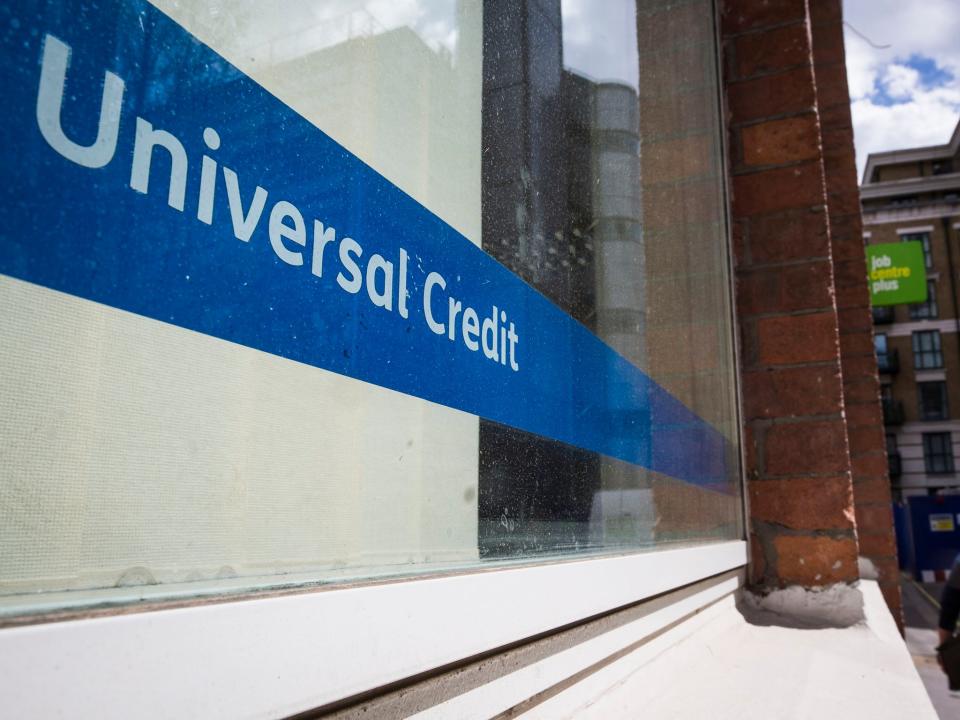Universal credit claimants driven to consider suicide over stress caused by welfare reform, report finds

Universal credit is pushing people into such hardship and anxiety that some have considered suicide, doctors have warned in a damning report.
A study by leading academics of claimants and support staff in Gateshead and Newcastle found the new benefit to be a “complicated, dysfunctional and punitive” system that forces people into debt and rent arrears and “simply doesn’t work”.
The research, among the first to focus on the experiences of claimants in a universal credit full service area, also said it was making people increasingly anxious and depressed and worsening existing health problems.
Introduced in 2013 to bring “fairness and simplicity” to Britain’s social security system, universal credit rolls six major working-age benefits, including job seeker’s allowance, tax credit and – crucially – housing benefit, into one payment.
People moving onto universal credit, especially those with disabilities, health problems or complicated lives, experience an average delay of seven and a half weeks before receiving their first payment, researchers said.
They explained that even once the payment is received, deductions for advance payments and rent arrears are leaving some people without enough money to eat or pay bills.
They found that the online universal credit system was impersonal and difficult to navigate, as well as lacking flexibility to deal with individual needs.
Although many of the claimants met the definition of “vulnerable” identified by the Department for Work and Pensions (DWP) due to physical or mental health issues, the additional support that should be available was not routinely offered.
Support staff have described widespread fear among their clients, worsening health and an increase in pressures on the voluntary and community sectors, local government and the health and social care system.
They told researchers it was common for them to bring in food parcels to support clients when they had nothing to survive on, and said they were fearful for the future as universal credit is rolled out more widely.
Dr Mandy Cheetham from Teesside University, lead author of the research, said it was an extremely distressing study to work on, adding: “Claimants were under severe stress as a result of the claims process and some people had been so low they said they had considered suicide.
“The process of claiming and then trying to survive in the system, with the constant threat of sanctions was making people increasingly anxious and depressed, and worsening existing health problems.”
Dr Suzanne Moffatt, co-author from Newcastle University, said they found no evidence that moving onto universal credit was helping people into employment, and that the design of the new benefit “simply does not work” for the people interviewed for the report.
Alison Dunn, chief executive of Gateshead Citizens Advice, said: “This research backs up what we see every day in our advice centres. More and more people are coming through our doors because they need help to claim.
“The online system is problematic and there are frequent errors that make it nigh impossible to process claims efficiently. The wait for payment is far too long, and delays are even longer when we have to sort out an error.”
As a direct result of the roll out of universal credit in Gateshead, an additional 10 advice and support employees have been recruited to help support tenants through the claims process and beyond.
Neil Bouch, executive director with The Gateshead Housing Company, said: “Despite this level of investment, the average level of rent arrears for people on universal credit has soared so our focus remains on getting people through the early weeks of the claim to a point where they can manage and sustain their tenancy.”
Director of public health at Gateshead Council, Alice Wiseman, said universal credit was a “significant concern for public health” and called for “immediate action in the form of a review, radical overhaul and quite possibly a halt”.
Catherine Donovan, deputy leader of Gateshead Council, said: “This report confirms the significant hardship we have seen people and families in Gateshead endure for some time now.
“Austerity is not over. The roll out of universal credit means people are having to choose between eating and heating. It is appalling that people in this study talked about feeling so low, they had considered suicide.
“They talked about the shame and stigma of using food banks. With Christmas coming, the impact on communities and families will be extremely hard. I’m calling on government to scrap universal credit as a matter of urgency.”
A DWP spokesperson said: “This survey of 33 claimants doesn’t match the broader experience of more than 9,000 people receiving universal credit in Gateshead, who are taking advantage of its flexibility and personalised support to find work.
“We have just announced a £4.5bn package of support so people can earn £1,000 more before their credit payment begins to be reduced, and we are providing an additional two weeks’ payments for people being moved from the old system.”

 Yahoo News
Yahoo News 